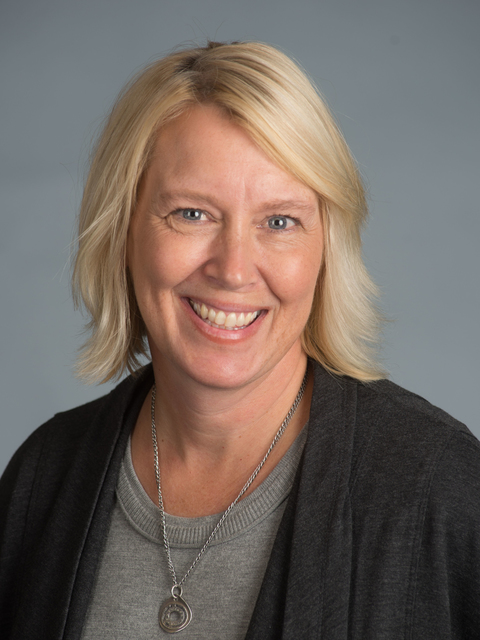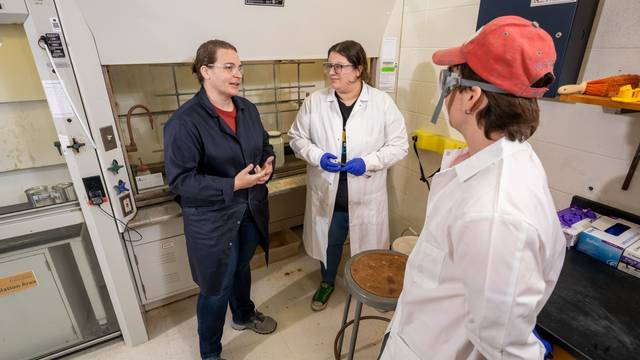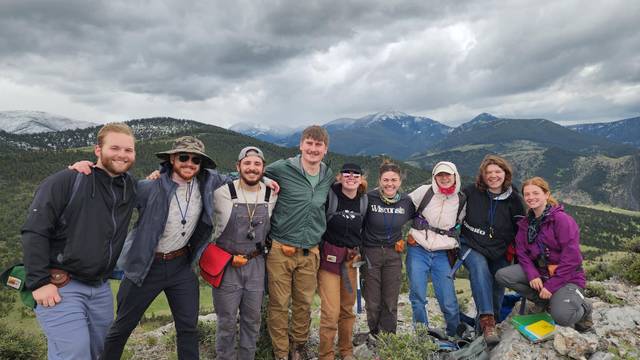Photo caption: Wyatt Pajtash is the geographic information systems coordinator for the Ho-Chunk Nation.
While Wyatt Pajtash became interested in sustainability while studying at the University of Wisconsin-Eau Claire, he wasn’t actively looking for it to be part of his future career.
Still, Pajtash, who earned degrees in geography and economics in 2020, is happy to be contributing to sustainability-related projects as the geographic information systems coordinator for the Ho-Chunk Nation.
In his role, Pajtash works with land information and provides GIS support for the Ho-Chunk government and tribal members, assisting with the planning for economic development on tribal lands and the administration of the tribe’s natural and cultural resources.
“Sustainability is a part of my job as I assist the Ho-Chunk Planning and Development Division with their plans for sustainable energy and their needs for maps and data for grants and planning,” Pajtash says. “Finding a job that had a sustainable aspect wasn’t my main goal after graduating but it is nice to have it as an aspect of the job.”
Pajtash’s interest in sustainability is among the reasons he was drawn to UW-Eau Claire’s economics and geography and anthropology departments, he says. Both departments offered research and other learning opportunities that had a sustainability focus, he says.
The knowledge and experience he gained in and out of his classrooms in both departments prepared him to be successful in his current position, Pajtash says.
“I learned technical GIS skills through classes, and I also learned how to share those skills with others by being a teaching assistant for a GIS geography class,” Pajtash says. “And that’s the main part of my job today as the Ho-Chunk Nation’s GIS coordinator. Other experiences, like helping with research in the economics and geography departments, prepared me to be able to jump into whatever project may pop up in my job.”
By juggling classes, research and other projects in two academic departments, he learned to manage multiple projects at a time, skills that are serving him well in his career, Pajtash says.
“Some of the best parts of my job are getting to work with all the different departments in the Ho-Chunk Nation, which spans a lot of different areas of work,” Pajtash says. “I have insight in to all the different things happening within a tribal government.”
His work is challenging and interesting, and the Ho-Chunk Nation supports him as he continues to learn new skills and expand his professional network. For example, he attends GIS-related conferences and is active in professional groups, including the Wisconsin Land Information Association.




